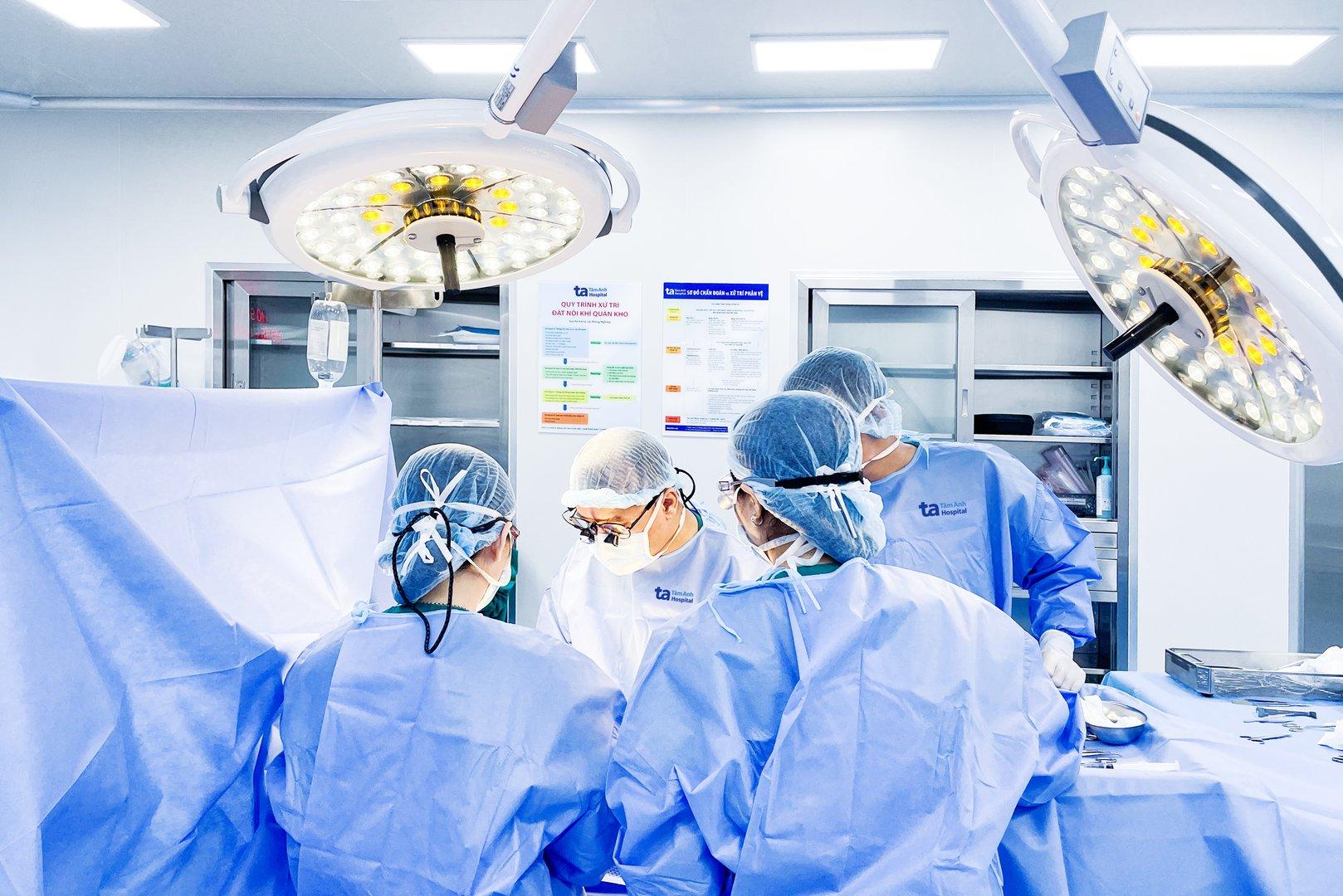Dr. Nguyen Do Trong, a pediatric surgeon at Tam Anh General Hospital in Ho Chi Minh City, explained that premature babies have weaker abdominal walls and a wider processus vaginalis (the canal through which the testes descend). This canal sometimes doesn't close completely, increasing the risk of intestines or other organs protruding and becoming trapped, potentially leading to intestinal necrosis or ovarian damage.
Hanh was born prematurely with low birth weight, jaundice, and respiratory issues. The risks associated with anesthesia and surgery were high. Doctors monitored her, waiting for her respiratory system to mature to minimize these risks. By her third month, the hernia opening had grown to 10x7 mm, pushing her intestines and an ovary into the canal, increasing the risk of twisting, blood supply disruption, and necrosis. Dr. Trong noted that without intervention, the child risked impaired reproductive function later in life.
Pre-operative assessment revealed Hanh's respiratory and circulatory systems were still underdeveloped, raising concerns about respiratory arrest, arrhythmia during and after anesthesia, and airway spasms during surgery. A specialized neonatal anesthesia and resuscitation team selected appropriate anesthetics, analgesics, and muscle relaxants in dosages suitable for her condition.
Dr. Trong surgically dissected the tissue layers to locate the hernia sac and repositioned the displaced organs, including intestines, ovary, and fallopian tube, back into the abdominal cavity. He then ligated and removed the hernia sac, closing the passage and preventing the organs from re-prolapsing. Hanh was monitored post-operatively and discharged two days later.
 |
Dr. Trong (center) performing surgery on the patient. Photo: Tam Anh General Hospital |
Dr. Trong (center) performing surgery on the patient. Photo: Tam Anh General Hospital
Inguinal hernias are common in premature babies due to incomplete anatomical development. Factors such as coughing, crying, and constipation can increase intra-abdominal pressure, pushing organs into the groin area. The most noticeable symptom is a bulge in the groin or labia majora, more prominent when the baby cries, strains, or coughs, and often disappearing when the baby is resting or sleeping.
Currently, surgery is the primary and most effective treatment for inguinal hernias. The timing of the procedure depends on the patient's condition. Parents of premature, low-birth-weight babies should seek treatment at hospitals with multidisciplinary teams to ensure effectiveness and minimize surgical complications.
Dinh Lam
*The patient's name has been changed.
| Readers can submit questions about children's health here for doctors to answer. |












